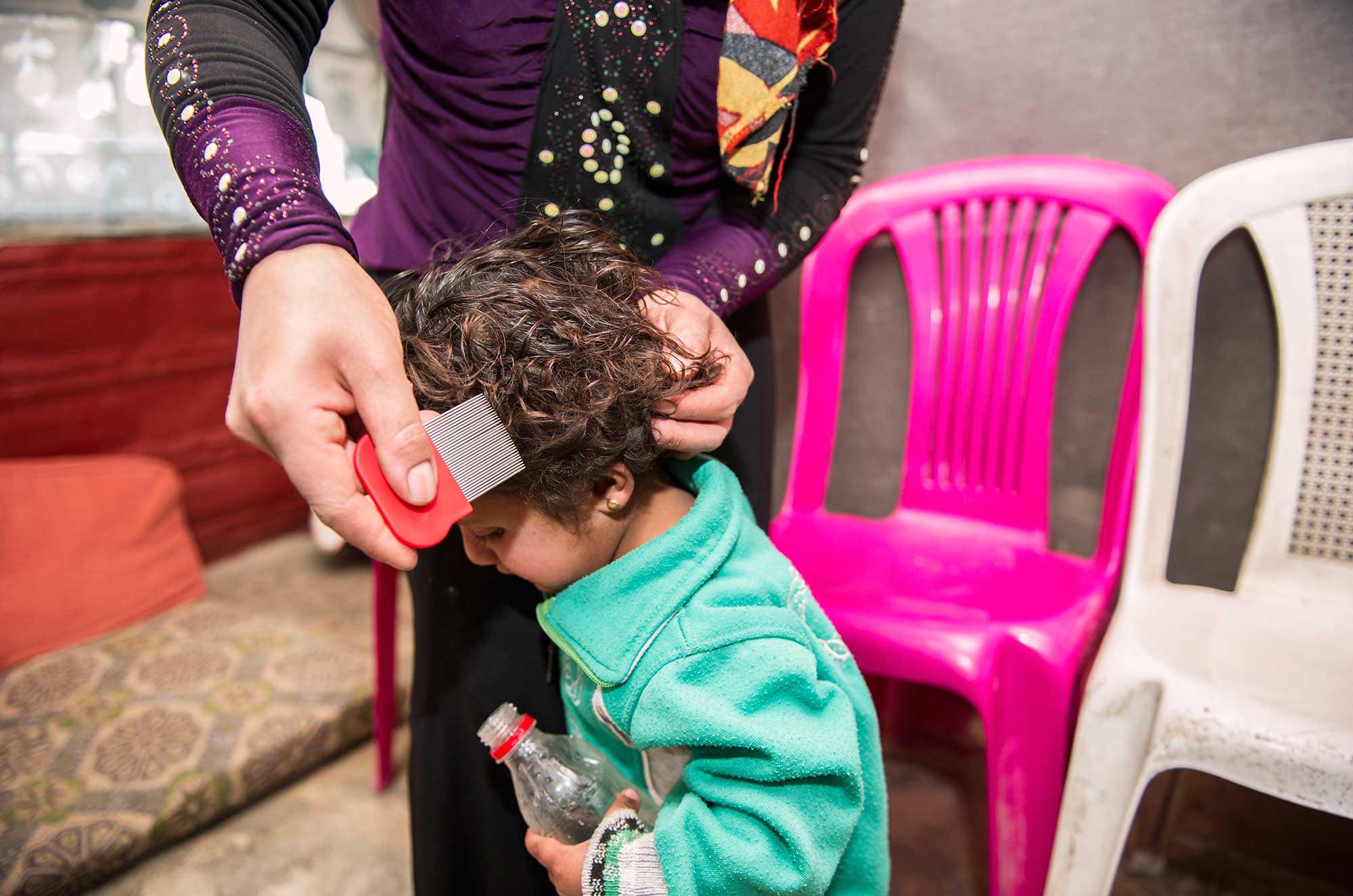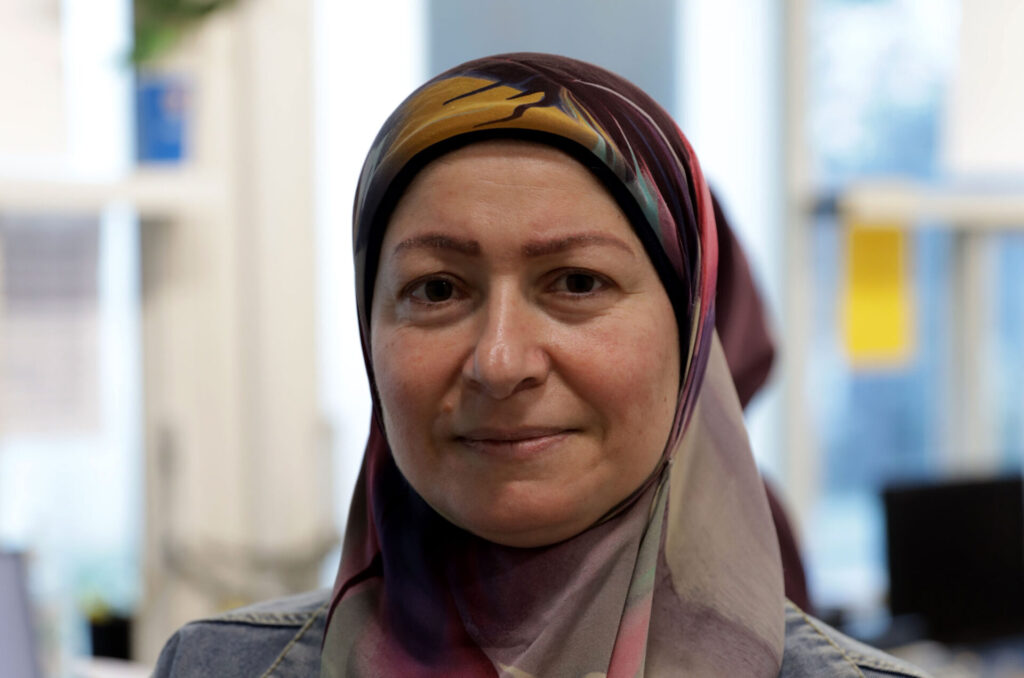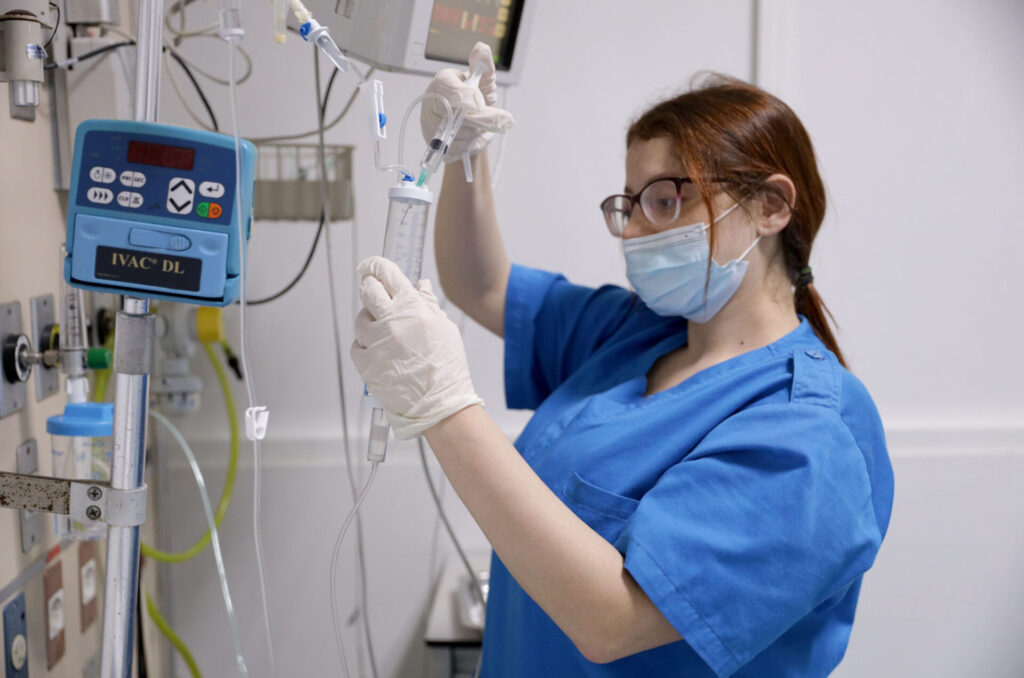Feb, 2014
As tens of thousands of refugees from Syria have squeezed into Lebanon’s overcrowded refugee camps health officials have tracked a serious outbreak of lice infestations. In Al-Yarmouk UNRWA School in Beirut, twice as many cases of lice infections were identified, compared to the previous year.
Principal Sharhabane Abel-Razik says lice is now the most common health problem affecting the elementary classes. It is a social problem too. “If the girls find out that one of their schoolmates has lice, they will not spare her,” explains Al-Yarmouk principal Sharhabane, “They will call her names or say her parents are dirty.”
To fight both the health and social implications of lice infection, Anera is supporting a lice treatment and prevention program in UNRWA schools in the Palestinian refugee camps of Lebanon. With funding from Johnson & Johnson, Anera will screen approximately 19,000 UNRWA elementary school students for lice and provide treatment for up to 9,500 identified cases of lice. All 250 schoolgirls at Al-Yarmouk school already have been screened; 50 cases of lice have already been treated.
Some 48 health tutors in all of UNRWA’s elementary schools of Lebanon received training on screening, counseling, prevention and treatment of lice infections. Another 30 to 50 will be trained in the coming months. Health tutors also will receive more than 9,000 bottles of lice shampoo and lice removal combs to distribute to parents of affected children.


Learning How to Treat Infections
Many families cannot afford to buy anti-lice shampoo. Anera health program manager Dima Zayat says they resort to alternative, sometimes dangerous methods. “Some parents rub mayonnaise or vinegar into their children’s hair but it is not very effective. And some use highly toxic products like kerosene.” Dima says some parents shave their children’s hair to get rid of the lice.
She says such radical treatments are partly for social reasons because lice infections are often seen as the result of bad hygiene. The lack of knowledge about the origin and transmission of lice can lead to bullying and loss of self-confidence.
Health tutors now conduct awareness sessions with parents who learn how to apply the right treatment and prevent recurrence of the contagious infection. Anera also distributed 9,000 copies of a step-by-step illustrated guide. “Anera’s booklet really helped,” explained health tutor Rana Awad. “It is well-illustrated and a great support for parents to help them carry out the treatment.”
Anera's anti-lice campaign will screen 19,000 students in UNRWA schools in Lebanon and train more than 60 health tutors.
She says previously many pupils were infected again and again even though UNRWA distributed anti-lice shampoo. She blames it mostly on the misuse of treatments.
Rana says this is the first year she has witnessed positive results: “We were even able to treat some resistant cases.”
Anera Health Manager Dima Zayat says she was pleased to be able to correct some misperceptions too. She says she surprised many parents when she explained the infestation has nothing to do with bad hygiene. “Lice do not come from dirty water; they go from one head to another and prefer clean hair to access the scalp.”
Anera’s program is screening students in all UNRWA elementary schools, with hopes of expanding the initiative to both preschools and higher grades.


